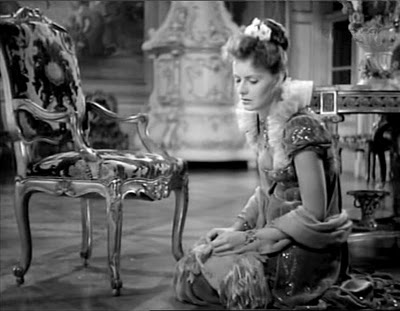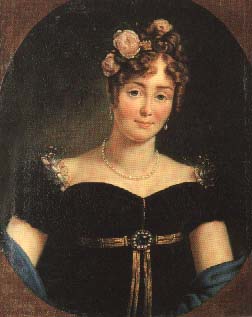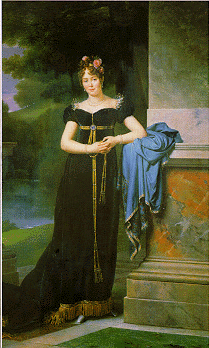Napoleon Bonaparte was not only a great general who dominated Europe, he was also a great reformer establishing the Napoleonic Code in the countries that he ruled. These laws introduced many of the reforms of the French Revolution: abolishing feudalism and serfdom, permitting universal male suffrage and establishing a bill of rights that included freedom of religion (except in Spain).
Napoleon also required that the kingdoms he established adopt French style administrative and judicial systems, foster public education, open higher education to those qualified regardless of rank, and promote the arts and sciences by establishing academies and subsidizing scientists and artists. The reforms were quite popular. Only later did the people of the empire resent the fact that constitutional government was limited, war taxes were very high, and their sons were conscripted into Napoleon’s army.
Napoleon had short affairs with many women and several long term attachments. Napoleon’s major relationship with a woman was with his first wife, the Empress Josephine, whom he loved dearly. But Josephine could not bear him a child, and Napoleon needed a son to carry on his dynasty. For years Napoleon feared that he was sterile. When Marie Walewska had a son by him, Napoleon was overjoyed and accelerated his plans to put Josephine away and marry a woman of royal blood who would bring him allies and bear him a legitimate heir. He chose Marie Louise, a Hapsburg Princess. She bore Napoleon a son, but she refused to stand by Napoleon when he was defeated.
Poland has been under foreign domination for much of its history. It is situated on a plain between Germany and Russia and is without natural defenses. Over the centuries, when Germany was powerful, its armies would invade eastward through Poland. When powers in the east were strong, such as the Mongols and the Russians, they would storm west through Poland. During the seventeenth and eighteenth centuries, through force and the bribery of the Polish aristocracy, Russia, Prussia, and Austria partitioned Poland, eliminating the Polish state by 1797. Napoleon promised to reestablish Poland, and as a result, tens of thousands of Poles served him enthusiastically in the Napoleonic Wars (1799 – 1815). Napoleon never followed through on this promise, establishing only the tiny Duchy of Warsaw as an independent state. Napoleon was always willing to sacrifice Polish interests in return for concessions from Russia or Austria.
In 1815, after the defeat of Napoleon, the Congress of Vienna set the borders of post-Napoleonic Europe. It established a Kingdom of Poland, but the king was the Russian Emperor. Polish nationalists then began an independence movement which culminated in an armed insurrection in 1830. It was crushed by the Russians the next year. Despite increasingly brutal Russian suppression, armed resistance broke out in 1846, 1848, 1861 and 1863. No stable independent Polish stated existed until after the First World War, but even that was short lived. Germany and the Soviet Union followed historical precedent by dividing Poland between them in 1939. Poland was resurrected after World War II but existed only as a satellite of the Soviet Union. In 1990, with the Soviet Union on the brink of collapse, a truly independent Polish state was established.
Marie Walewska was the daughter of impoverished Polish nobility. At age 16 or 17, she rejected the young and handsome son of a Russian officer because she was unable to ally herself with the oppressors of her country. She was then pressured by her family to marry Count Walewski, a wealthy and respected member of the nobility, who was in his seventies. Count Walewski paid the farming debts of Marie’s family and fathered a son by Marie. Napoleon came to Poland in 1806 when he was 37 years of age. Marie Walewska was 18. The country was alive with the hope that Napoleon would liberate Poland. Marie, who idolized the Emperor, put on peasant dress and joined the crowd at one of the locations at which Napoleon’s carriage would stop. She asked to meet him and because of her great beauty, she was brought to him. Napoleon was enchanted and began a campaign to win her favors. Marie initially resisted his advances. Polish officials desiring to please Napoleon in hopes that he would establish Poland as a nation again pressured Marie to relent, and eventually, she did. Marie later fell in love with Napoleon, bore him a son, and remained faithful to him for years.
Marie Walewska herself described Napoleon’s words, in one of his early appeals to her:
“Didn’t you come running like a mad woman — at the risk of being stifled by the crowd — to see me and flatter me? I let myself be taken in by your passionate expression. And then you vanished. I tried in vain to seek you out; I could not find you. And when you finally did appear, all I found in you was ice, while I myself was burning! Listen, Marie! I want you to know that every time I have believed something was impossible or difficult to achieve, I have desired it ardently. Nothing discourages me. The phrase ‘It can’t be done!’ merely spurs me on, and I continue to advance. Since I am used to seeing people yield eagerly to my wishes, your resistance subjugates me. The idea of seducing you has gone to my head, and I am set upon it. I want — and you must understand this word well — I want to force you to love me.” (From Marie Walewska’s Memoirs and was found in Napoleon by Guy Daniels (Harper & Rowe, 1971) pp. 316 & 371. Marie dictated this memoir after she had remarried and after the Second Abdication, at a time when she would want to make it appear that she was acting as a Polish patriot. There is, however, nothing that we are aware of which contradicts this account.)
“Marie, I have revived the name of your country. It still exists, thanks to me. And I will do more than this! But just remember that, like this watch that I hold in my hands, which will shatter at your feet” — and he did throw it at my feet — “its name will perish. And so will all your hopes perish if you drive me to extremes by rejecting my heart and refusing me yours.”
Napoleon described Marie Walewska in these words: “She is an angel. It may justly be said that her spirit is as lovely as her features.” Many people agreed. Marie Walewska was renowned for her beauty and grace. Napoleon saw to the financial security of Marie Walewska and of their son. After Count Walewski’s death, Marie married a French nobleman, apparently without opposition from Napoleon, then in his final exile on the island of Saint Helena. (From Napoleon by Emile Ludwig (Boni & Liveright, 1926), page 264.)





